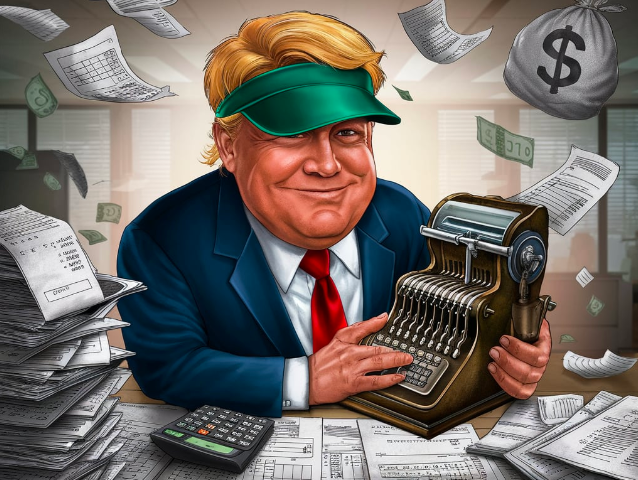News
Should Trump Have a Say in U.S. Monetary Policy?

In a bold statement that’s sparking debate across the political and economic spectrum, GOP presidential candidate Donald Trump proposed that, if re-elected, he should have direct input into U.S. monetary policy. This idea stems from his extensive experience in business—a realm where he's made significant, often controversial, financial decisions. Considering the apparent shortcomings of the Federal Reserve in making timely financial interventions, is Trump’s proposal a better alternative? Devoid of political tones, is this a smart strategy that could lead to economic prosperity? Or does it risk undermining the foundational principles of U.S. monetary policy?
Trump’s Business Acumen: A Case for Influence
Trump’s belief that he should have a say in the Federal Reserve’s decisions is deeply rooted in his business career. Over the decades, Trump has built a real estate empire, branded products, and more recently, capitalized on digital and social media trends. For instance, Trump has ventured into the world of NFTs, creating digital collectibles that feature his image and capitalizing on the growing market for unique digital assets. Additionally, he’s launched branded products like Trump Bibles, which cater to his supporters, and established Truth Social, a social media platform that has garnered significant attention.
These business moves highlight Trump’s ability to adapt to new markets and capitalize on opportunities. His supporters argue that this kind of strategic thinking could be beneficial in managing U.S. monetary policy. By lowering interest rates, Trump believes he can stimulate investment and consumer spending, potentially driving economic growth—an approach that mirrors how he’s operated in the business world.
Can Business Tactics Work in Monetary Policy?
The argument for Trump’s involvement in monetary policy hinges on the idea that a business-oriented approach could lead to more responsive and dynamic economic management. Just as Trump has leveraged market trends to maximize profits in his businesses, he could potentially use similar tactics to boost the U.S. economy. Lower interest rates, for example, could encourage borrowing and spending, which are crucial for economic growth.
However, this approach also carries significant risks. The Federal Reserve's independence has long been viewed as essential to maintaining economic stability. Critics argue that allowing a sitting president to influence monetary policy could blur the lines between economic management and political strategy, leading to decisions that prioritize short-term gains over long-term stability. If monetary policy becomes too closely tied to political agendas, it could erode investor confidence and create volatility in financial markets.
Can Trump’s Proposal Impact US Monetary Policy and Your Business As Well?
If Trump were to gain influence over monetary policy, the most immediate effect could be a reduction in interest rates. This would likely lower the cost of borrowing, making it cheaper for consumers to finance homes, cars, and businesses. However, while this could provide a short-term boost to the economy, there’s also the potential for long-term consequences.
One significant risk is inflation. If the economy grows too quickly due to lower rates, prices could rise, reducing the purchasing power of consumers and leading to higher costs for everyday goods and services. This could negate the benefits of lower borrowing costs, particularly for those on fixed incomes or with limited financial flexibility.
Do We Want Presidents to Shape Monetary Policy?
Trump’s push to have a say in U.S. monetary policy represents a significant shift in how the economy could be managed. His business record suggests that he could bring valuable insights to the table, potentially leading to more aggressive strategies to stimulate growth. However, the risks associated with politicizing monetary policy cannot be ignored. Or course, many critics are already pointing out that anybody or anything is better than the current crop of Federal Reserve officials.
As voters and policymakers consider this proposal, it’s crucial to weigh the potential benefits against the risks. Could Trump’s business-savvy approach revolutionize U.S. monetary policy, or could it lead to unintended economic consequences? The answers to these questions will shape the future of the U.S. economy—and your financial well-being.
The Potential Impact on American’s Finances
How would Trump’s involvement in monetary policy affect your financial future? Would lower interest rates help you achieve your financial goals, or would the risk of inflation pose a greater threat? Engage with us and share your thoughts on this critical issue.



